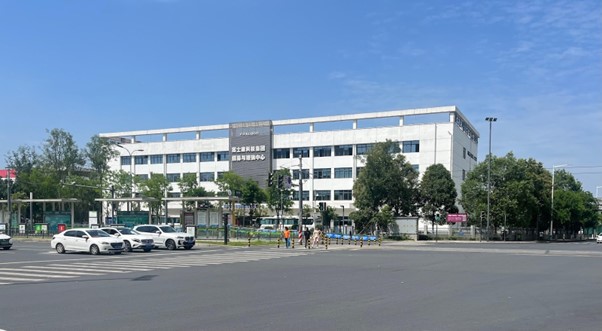Great piece by Paul Jobin on the decades-long (legal) struggle of Taiwanese workers producing for US and later French television companies, who contracted cancer or other illnesses from exposure to toxic substances. The workers, mainly comprising women, were exposed to numerous chemical substances, including trichloroethylene and other carcinogens, without adequate protection and medical monitoring. The company, RCA, had deliberately concealed information about the pollution of the site, which was later found to have contaminated soil and groundwater. In October 2017, Taipei High Court confirmed the liability of all defendants, including General Electric, and recognised the causal link between exposure to the toxic substances and the most serious diseases such as cancer.
related content
Historic strike at SAMSUNG
The largest union at Samsung Electronics has launched an indefinite strike following failed negotiations over pay and working conditions. Initially planned as a three-day strike by 6,500 workers, it has expanded as management remained silent….
Chain of Consequences: How Chinese Workers Pay for Supply Chain De-risking
SOMO and the China Labour Bulletin have released a report titled ‘Chain of Consequences: How Chinese Workers Pay for Supply Chain De-risking.’ The report details how apparel and electronics brands are relocating production away from…
Justice for Aricell Workers
The Asian Network for the Rights of Occupational and Environmental Victims (ANROEV) condemns the gross negligence and violations of Occupational Safety and Health (OSH) rights that resulted in the tragic death of 23 workers in…
GoodElectronics’s input for the Special Rapporteur: Gender and Toxic
India’s iPhone factory is keeping women workers isolated
This long read by Johanna Deeksha shows how in India’s iPhone factory, women workers are isolated through restrictive housing in hostels, raising concerns about their working conditions. Managed by Foxconn in Tamil Nadu, this practice…
Biomonitoring in electronics facilities in Indonesia reveals workers’ exposure to chemicals
A participatory study conducted in Batam, Indonesia used biological monitoring to evaluate the extent of chemical exposure among workers in the electronics manufacturing industry. Urine samples were collected from workers both before and after their…
IndustriAll Europe and IndustriALL Global Union denounce due diligence setback
29 February, 2024 – On behalf of the 50 million workers they represent in 140 countries, industriAll Europe and IndustriALL Global Union denounce the unacceptable political setback as EU several Member States fail to live…
Indonesian unions demand investigation of ITSS furnace explosion
Here is a link to IndustriALL’s statement on the deadly explosion at PT Indonesia Tsingshan Stainless Steel (ITSS), a company based in the Indonesia Morowali Industrial Park (IMIP) in Central Sulawesi. The explosion, which happened…
Labor Conditions In China’s Consumer Electronics Sector
This report by China Labor Watch highlights severe labor conditions in China’s consumer electronics sector. The study, based on workers’ testimonies and on-site data, reveals systemic issues like illegal intern usage, hiring discrimination, and workplace…











